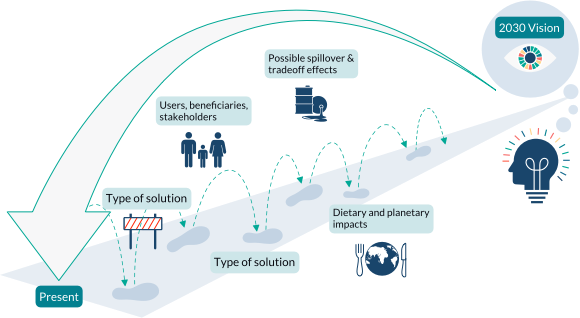Interdisciplinary education or pedagogy can be defined as learning across disciplines to encourage the synthesis of broad ideas, methodologies, and theories. This is often done for the purpose of examining complex social issues, with the nutritional problems of hunger, malnutrition, obesity, and other related food systems issues, whether environmental, sociocultural, economic, or otherwise, being prime examples. While disciplinary specialization was the dominant trend for higher education of the first half of the twentieth century, there has been a tremendous growth in interdisciplinary...
Interdisciplinary education or pedagogy can be defined as learning across disciplines to encourage the synthesis of broad ideas, methodologies, and theories. This is often done for the purpose of examining complex social issues, with the nutritional problems of hunger, malnutrition, obesity, and other related food systems issues, whether environmental, sociocultural, economic, or otherwise, being prime examples. While disciplinary specialization was the dominant trend for higher education of the first half of the twentieth century, there has been a tremendous growth in interdisciplinary studies generally, and those who study and teach about the food system have increasingly pushed for an interdisciplinary pedagogy given the complexity of its issues. In short, rather than focusing solely on one aspect of food as a source of human nourishment and nutrition, or agricultural production with the goal of maximizing yields / income, an interdisciplinary nutrition education would promote systems thinking, cross-disciplinary frameworks, and experiential and skill-based as well as theoretical learning, in order to prepare students to best tackle the complex and diverse issues of the food system from the perspective of the field of nutrition.


